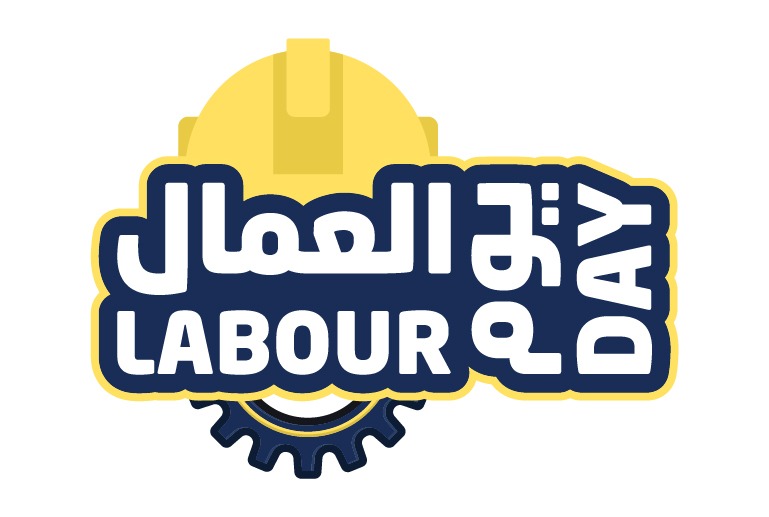
 2020-05-02
2020-05-02
Position Paper asserts that Daily Workers have fallen into the clutches of the virus and the curfew has casted a dark shadow over their fate
AMMAN - Workers have demanded the need to adhere to and abide by labor law and public safety guidelines related to occupational safety in workplaces in light of the outbreak of the Corona virus (COVID 19). They also asked for an increase in precaution and caution to be practiced in the work environment, by applying maximum protection standards, to reduce infection rates amongst them.
These demands in a position paper which was recently prepared by Tamkeen for Legal Aid and Human Rights on the occasion of International Labor Day, which falls annually on May 1.
In the paper, Tamkeen emphasized that social protection is an essential component of the Universal Declaration of Human Rights, according to its Article (22). The article asserted the everyone, as a member of society, has the right to social security, while article 23 stipulated that “Everyone who works has the right to just and favourable remuneration ensuring for himself and his family an existence worthy of human dignity, and supplemented, if necessary, by other means of social protection.”
According to Tamkeen, while social protection was highlighted in Jordanian legislations and legal frameworks, the laws, regulations and instructions that do so are still deficient or inadequate when compared with international standards.
Thus, the paper pointed out that while “the government has decided to provide subsidies to the poor, daily workers, the elderly and refugees from Gaza, who were affected by the Corona pandemic to compensate them for the damage caused to them due to its measures to reduce the spread of the virus. The measures that were issued by the Social Security Corporation or the National Aid Fund did not mention migrant workers or refugees.
The omission of these categories is done even though “there are some of them who are included under the umbrella of Social Security. Moreover, these groups are as affected as Jordanians by the current situation, and maybe even more so since they are considered part of the vulnerable groups who were already exploited due to their low wages and working in an inappropriate work environment."
Tamkeen thus recommended “increasing inspection visits and ensuring the application of public safety standards in the workplace. It also urged for the adoption of policies that accelerate the efforts to address the crisis and its effects, which will stimulate economic growth, and provide social protection.”
The organization also called for "easing the criteria for eligibility from social protection funds, and the inclusion of workers of different nationalities and employment types under the umbrella of social security, so that they can obtain unemployment benefits. Other recommendations include allowing non-Jordanians to participate electively in social security; tightening control over establishments and projects that do not include its workers under SSC; and providing those who are required to work remotely with technical and administrative training that would allow them to complete their work, and finally for the application of Flexible Work standards within clear frameworks specified by the law.”
The paper indicated that the government has taken several preventive and health measures since the first case was detected in Jordan to curtail its spread. Therefore, it activated the Defense Law No. (13) of 1992 on March 21st, imposing curfews, and stopping work in several sectors, with the exception of health and other essential sectors that will ensure the provision of basic needs from medicines, food, water, detergents, etc.
These measures have caused severe repercussions for workers in various sectors, though the biggest of these effects were felt by daily workers and self-employed workers. The impact on these workers was quite evident during the monitoring which Tamkeen began since the onset of the crisis and has thus far covered more than1370 workers from different nationalities who are employed in various sectors, including: restaurants, bakeries and sweets, private education and agriculture, construction, work from home, factories, and handymen.
The paper showed that as a result of the curfew, workers have had to stop working as their institutions were closed, which caused uncertainties to spread about their fate after the crisis. Others were struggling since they did not receive their full wages for the month March, despite government decisions that obligated employers to pay these wages in full.
It also revealed that the lockdown period, which has been expanded till the last of May, exacerbated their poor living conditions and deprived them of the ability to meet their basic needs and those of their families.
The paper highlighted that daily workers, Jordanians, migrants or refugees alike, are currently subjected to difficult economic and living pressures, and that some of whom lack the ability to meet their daily needs. The government has tried to address this difficult situation by launching a special platform for them under the auspice of the National Aid Fund to provide them with some aid that will help them with their living expenses. Unfortunately, the platform only provides this assistance to Jordanians and Gazans, which means that migrants and refugees are absent from these programs, even though they are struggling as well.
Then, the attention was shifted into the agricultural sector, which was allowed to resume work after a week of the curfew. However, many of the workers were unable to reach their workplace, leading to the destruction of some crops, and the death of some livestock. Farmers were also negatively impacted since they were unable to market their products because market demand stopped, especially after restaurants and hotels closed due to the curfew.
These difficulties were further compounded by the inability of many to obtain permits to move, with the exception of a small percentage of employers. Other challenges include the lack of preventive measures followed by many employers. Thus, workers who were given permits were transported there by inappropriate means, which are crowded and do not meet the main measure to prevent the spread of the virus: social distancing. Additionally, many workers were not provided with either masks, gloves or sterile materials by their employers; according to workers in the sector who work on farms in Azraq, Deir Alla, Mafraq and Northern Shouneh.
In the construction sector, the conditions for contracting varies. Some workers are employed with a specific employer; others work for different employers and receive daily wages; or those who work with contractors in certain projects and either receive their wage daily or once the project is finished. Most of these workers are not covered under the umbrella of social security, which led them to borrow money to cover their basic needs.
Workers in restaurant, bakeries, and sweet shops were also affected. These workers come from various backgrounds, and include Jordanians, Egyptians, Yemenis, and Syrians. The majority of the workers whom Tamkeen met revealed that they had not received their wages for the month of March. Other violations included being threatened with dismissal from work; being forced to resign, or take paid and unpaid annual leave. Some workers also said that they received notifications from employers stating that they were unable to pay their wages for the past month.
The same situation was also detected in the private education sector, where workers said that they have been under pressure by their employers since the beginning of the crisis. Many of these employers wanted them to submit their resignations, with the intention of being reinstated once the crisis is over. Others were pushed to submit requests for unpaid leave; others were arbitrarily dismissed without being informed of when their wages will be paid.
Female teachers who spoke to Tamkeen shed light on the difficulties that they were facing with managing their lessons through the distance learning platform that was imposed by the crisis. They confessed that the system is in fact not effective, and cannot be viewed as a substitute for classroom education. As for other school workers, like guards, office boys, and others, their fate remains unknown, especially regarding their wages.
The same struggles are faced by workers in the textile sector, after demands on their products stopped. They also were unable to reach their workplaces, which led to them losing their income. Some of these workers were not paid their wages, especially those whose wage depend on the number of garments they produce. Since workers were unable to work and factories did not deliver their shipments in time, it meant that these workers did not receive a wage.
Likewise, workers in the tourism sector, whose offices were closed, were left in a precarious position especially since the majority of this sector is irregulated and are thus dependent on their salaries. Due to the crisis though, they lost their income and were not eligible to receive any support because they are not registered under social security. Such a status means that the majority of them are not covered under the social protection framework, and cannot receive either unemployment benefits or pension salaries.
The paper highlighted the status of Egyptian workers, since they are the largest group among the migrant workers in Jordan. Similar to their Jordanian counterparts, these workers have stopped working, limiting their ability to provide their basic livelihoods. Consequentially, these workers did not send any remittance to their families back in Egypt. Another group of them were forced to go back to work, or submit a no-paid wage vacation request, or did not receive their wages from their employer before the curfew was imposed.
Finally, workers in industrial areas are subjected to compounded conditions, as they live and work in the same place. Tamkeen revealed that 14 days after the curfew was imposed, some factories were allowed to resume working. These workers thus returned to their jobs, even though they were not provided with even the minimum occupational safety and protection tools, as some of them revealed in their communication with Tamkeen.

